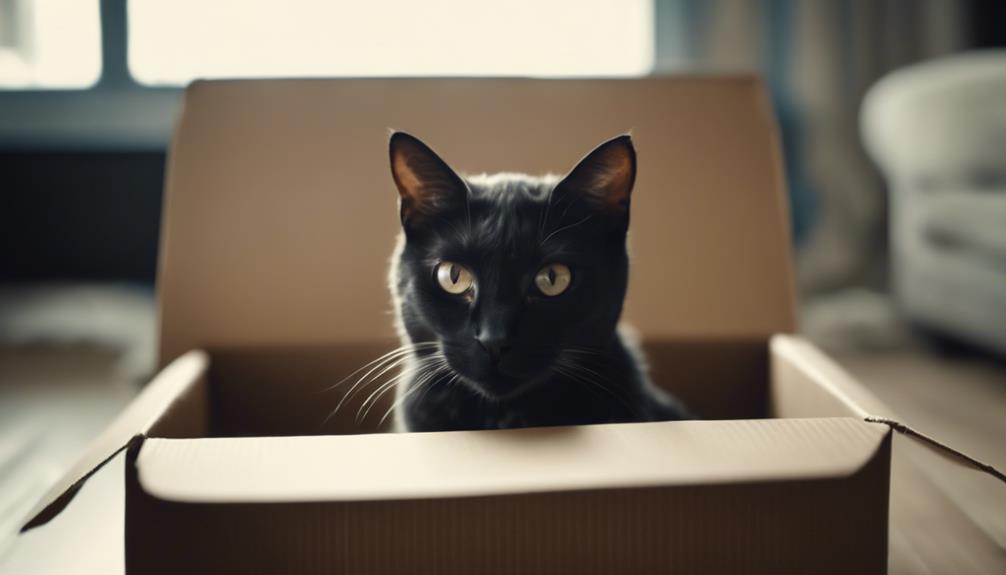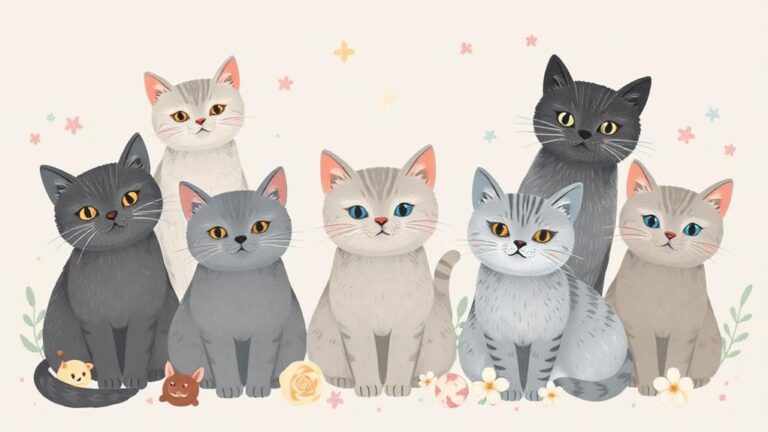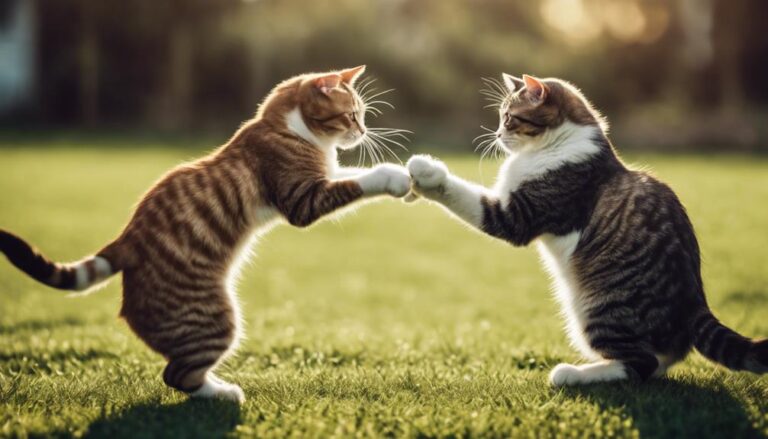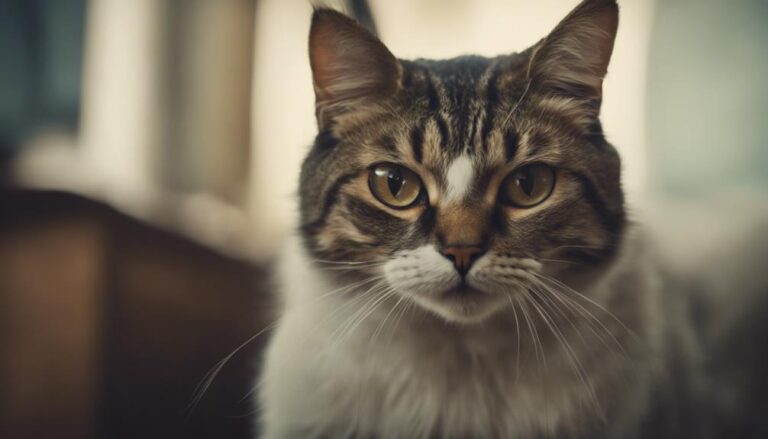Have you ever wondered why your feline companion seems to have an unexplainable love for boxes but an intense dislike for carriers? The contrast in their behavior towards these two seemingly similar objects can be quite puzzling. However, there is a fascinating reason behind this preference that taps into your cat's instincts and unique personality traits. By understanding this intriguing aspect of feline behavior, you'll gain valuable insights into your cat's world and perhaps find ways to make their travel experiences more enjoyable and stress-free.
Reasons Cats Prefer Boxes Over Carriers
When it comes to why cats prefer boxes over carriers, their natural instincts play a significant role in seeking out cozy, enclosed spaces. Cats love boxes because they provide a safe space that fulfills their need for a hiding place. The enclosed nature of boxes gives cats a sense of control, allowing them to retreat to a familiar and secure environment. Unlike carriers that can feel confining and stressful, boxes offer cats the freedom to observe, play, and relax without feeling trapped.
Cats are drawn to enclosed spaces like boxes due to the comfort and warmth they provide. The snug fit and limited openings of boxes create a sense of security that appeals to cats' instinctual behaviors. This feeling of coziness and seclusion in boxes contrasts with the anxiety that carriers may evoke in cats. By choosing boxes over carriers, cats instinctively gravitate towards environments that promote relaxation, play, and a sense of ownership.
Cats' Natural Attraction to Boxes
You know how cats just can't resist a box – it's like offering them a cozy little fortress where they feel safe and secure.
Their instinct as stealthy predators makes them crave these confined spaces, providing a sense of comfort and protection.
When they sneak into a box, it's not just play; it's their natural inclination to seek refuge in a hidden spot.
Box Appeal in Cats
Naturally attracted to confined and enclosed spaces, cats find irresistible comfort and security in the simplicity of a box. For cats, boxes offer a safe haven where they can retreat and feel secure, especially when in a new environment.
The enclosed space of a box provides a sense of control for cats, allowing them to observe their surroundings while feeling protected. Additionally, the cozy and warm environment inside a box appeals to cats' desire for comfort and relaxation.
Their innate curiosity drives them to explore boxes, satisfying their need to investigate new items. Ultimately, boxes serve as versatile spaces for cats to hide, play, and fulfill their natural hunting instincts, making them a favorite among our feline friends.
Safe Space Instinct
Cats instinctively seek out confined and enclosed spaces like boxes for a sense of security and comfort. When your feline friend curls up in a box, it's not just a cozy spot; it's their safe place, where they feel secure and protected.
Research from the University of Utrecht reveals that boxes offer shelter cats a place to recover faster and adapt more easily to new surroundings. The enclosed space not only provides warmth but also retains their body heat, creating a snug environment that aligns with their natural instincts.
Security in Confined Spaces
Boxes, with their enclosed and snug spaces, serve as a natural haven for felines seeking security and comfort. Cats are instinctively drawn to confined spaces that provide a sense of security and protection. The warmth and luxury cave-like feel that boxes offer make them irresistible to our feline friends.
This confined environment mimics the cozy dens that cats would seek in the wild, creating a sense of safety and tranquility. Additionally, the enclosed nature of boxes appeals to cats' natural instincts for hiding and observing their surroundings discreetly.
Comfort and Security in Boxes
Finding solace in the enclosed spaces of boxes, cats revel in the sense of comfort and security these makeshift dens provide. The small, confined nature of boxes creates a cozy environment that mimics the warmth and protection of a natural den, promoting relaxation for your feline friend.
Here are some reasons why cats find comfort and security in boxes:
- Natural Instincts: Cats are drawn to small spaces as it appeals to their natural instinctive behavior, making them feel safe and in control of their surroundings.
- Stress Reduction: Boxes serve as hiding spots where cats can retreat to reduce stress levels and find a sense of security, contributing to their overall well-being.
- Personal Sanctuary: The enclosed space of a box offers a private sanctuary for cats to curl up, nap undisturbed, and find familiarity and comfort in a world that can sometimes be overwhelming.
Psychological Aspect of Cat Behavior
Amidst the solace and security that boxes offer to cats, delving into the psychological aspect of feline behavior sheds light on their aversion to carriers. Cats' preference for cardboard boxes can be attributed to their natural instincts.
Cats have an innate desire for exploration and hiding in small, enclosed spaces, which cardboard boxes provide. These spaces give them a sense of security and control, aligning with their instinctual behaviors in the wild.
On the other hand, carriers present a challenge for cats due to their psychological aversion to confinement. The enclosed nature of carriers can trigger negative associations, especially if they've experienced stressful events like vet visits while inside them. Cats may feel trapped and vulnerable in carriers, leading to distress and anxiety.
Understanding these psychological aspects of feline behavior can help cat owners create a more comfortable and stress-free environment for their beloved pets.
The Negative Association With Carriers
Cats often display signs of distress, such as hissing and spitting, when being placed inside carriers, reflecting their negative association with confinement. This aversion can be attributed to various factors:
- Negative Past Experiences: Cats associate carriers with unpleasant events like vet visits, leading to carrier-phobia.
- Memory of Negative Associations: Cats have a remarkable memory and can link past negative experiences with carriers, causing anxiety.
- Uncertainty and Stress: The uncertainty of what happens in carriers can induce stress and discomfort for cats, exacerbating their negative feelings towards carriers.
These negative associations with carriers can result in cats resisting or becoming anxious when faced with the prospect of being confined in one. Understanding these reasons can help in addressing cats' apprehensions and improving their overall experience with carriers.
Ways to Improve Cats' Carrier Experience
Consider selecting a carrier that aligns with your cat's size and material preferences to enhance their comfort during transportation. This choice can significantly impact how your cat perceives the carrier. Desensitize your cat to the carrier by creating positive associations with treats or toys inside. By introducing these familiar items, your cat may begin to view the carrier as a safe and enjoyable space.
Allow your cat to explore the carrier in a safe and calm environment to reduce fear and anxiety. Positive reinforcement, such as praise and treats, can help your cat feel more at ease with the carrier. Gradually increase the time spent in the carrier to help your cat acclimate and associate it with positive experiences.
Through patience and consistent training, you can improve your cat's carrier experience and make traveling or vet visits less stressful for both you and your feline companion.
Frequently Asked Questions
Why Does My Cat Hate Being in a Carrier?
Your cat may dislike carriers due to past negative experiences, feeling trapped, and the uncertainty they bring. These factors can lead to stress and fear, causing your feline friend to resist being in a carrier.
Why Does My Cat Hate Cardboard Boxes?
When your cat hates cardboard boxes, it might be due to past negative associations or simply not liking the texture or smell. Each cat has unique preferences, so it's essential to respect their individual likes and dislikes.
Do Cats Like Being in Carriers?
When it comes to being in carriers, cats often feel anxious and trapped. The confined space triggers their natural instinct to resist. The uncertainty and negative past experiences make carriers a source of stress, causing them to dislike being inside.
Why Do Cats Hate Crates?
You dislike crates because they make you feel trapped and unsure. The unpredictability and negative associations, like vet visits, cause stress. This discomfort leads to resistance and distress. Boxes offer safety and control, unlike carriers.





